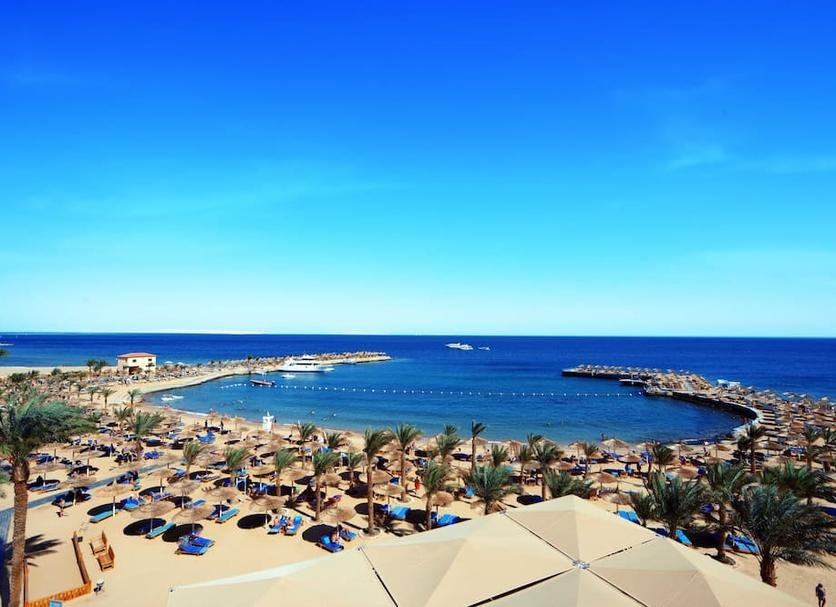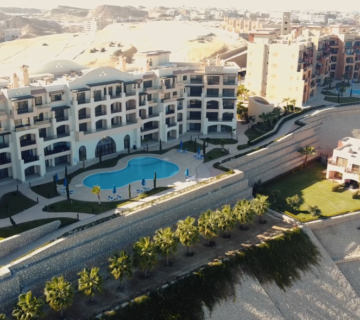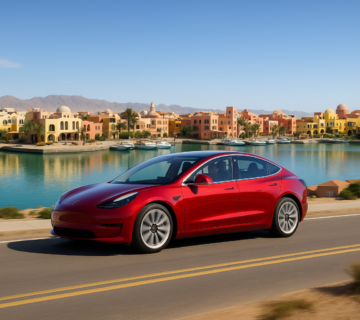Regarding idyllic seaside destinations, Hurghada often surfaces as one of Egypt’s most captivating Red Sea locales. It’s not just a tourist haven, however. This city continues to make serious waves in international real estate, particularly among expats seeking a warmer climate, lower living costs, and a unique cultural experience. In this 2025 update, we’ll compare Hurghada’s most recent cost-of-living figures to major global cities, focusing on the everyday expenses that matter most to expatriates and remote workers.

1. Housing Costs
Hurghada (2025)
- Rental Prices: In 2025, the monthly rent for a one-bedroom apartment in a central or tourist-friendly area often ranges between $300 and $500. In upscale developments or beachfront complexes with resort-style amenities, rates may reach $600 to $900 per month, depending on the view and quality of finishes.
- Property Purchase: Smaller resort-style condos typically begin around $35,000 to $55,000, though premium seafront developments with private beaches and state-of-the-art facilities can command higher price tags.
New York City (2025)
- Rental Prices: A one-bedroom in Manhattan usually costs $2,800 to $3,500 monthly, depending on the neighborhood. Even in the outer boroughs, rent commonly exceeds $2,200 for a similar space.
- Property Purchase: Modest condos can still hover around $1 million in prime Manhattan locations, making homeownership out of reach for many newcomers.
London (2025)
- Rental Prices: In prime areas (Zone 1 or 2), a one-bedroom now averages £1,600 to £2,200 (approximately $2,000 to $2,750) monthly.
- Property Purchase: The average price for a small flat in desirable neighborhoods exceeds £520,000 (roughly $650,000).
Dubai (2025)
- Rental Prices: Central hotspots like Downtown Dubai or Dubai Marina now charge $1,700 to $2,700 monthly for a one-bedroom.
- Property Purchase: Luxury high-rise units in prime locations often start above $350,000, with ultra-luxe penthouses going well into the seven-figure range.
Key Takeaway
Despite moderate price increases over the past few years, Hurghada’s real estate market still offers a far more affordable coastal lifestyle than many global powerhouses. Even prime beachfront rentals in Hurghada can be a fraction of what you’d expect to pay in cities like NYC, London, or Dubai.
2. Utilities and Services
Hurghada (2025)
- Electricity, Heating, Water, Garbage: The monthly utility package for a modest apartment typically falls between $50 and $75. Larger villas, especially those that rely heavily on air conditioning, can see bills range from $90 to $120.
- Internet and Mobile: High-speed internet service packages (20–30 Mbps) often cost $20 to $30 monthly. Prepaid mobile plans remain comparatively low, and data packages are widely available.
New York City / London (2025)
- Utilities: Monthly utility bills for a small apartment can hover around $170 to $220 in New York and around £120 to £150 (approximately $150 to $190) in London’s core areas, depending on usage and building type.
- Internet and Mobile: In NYC, internet costs can range from $60 to $90 per month, while Londoners may pay £35 to £50 ($45 to $65). Premium mobile plans add extra costs.
Dubai (2025)
- Utilities: Air conditioning remains a significant factor in the desert climate; monthly bills can exceed $220 for moderate usage and more if you’re cooling a large villa.
- Internet and Mobile: Bundled internet and mobile packages usually cost between $80 and $120 per month, depending on speed and data allowances.
Key Takeaway
Utility and internet costs in Hurghada remain modest, even after 2025’s adjustments for increased energy prices and inflation. Expats can still expect to pay significantly less in utilities than they would be charged in big Western or Gulf cities.
3. Groceries and Dining Out
Hurghada (2025)
- Groceries: Thanks to local markets, fresh produce, and affordable staples, a couple’s weekly grocery run averages $40 to $60. Imported specialty items cost more, but local options remain budget-friendly.
- Dining Out: An essential meal at a local restaurant often costs $6 to $12, while a mid-range dining experience might cost $12 to $25 per person, depending on location and cuisine.
New York City (2025)
- Groceries: The weekly grocery bill for one person now often reaches $90 to $110, with a couple’s weekly total typically surpassing $160.
- Dining Out: A casual restaurant meal for two can cost between $50 and $900 before drinks and gratuities.
London (2025)
- Groceries: Individuals can expect to spend £55 to £80 ($70 to $100) weekly on essentials.
- Dining Out: A pub meal for two in a non-central neighborhood might cost £40 to £60 ($50 to $75). Upscale dining easily surpasses £100 ($125+) per person.
Dubai (2025)
- Groceries: A weekly shop may exceed $120 to $180 for families who prefer imported products.
- Dining Out: Dinner at a mid-range restaurant can be $30 to $50 per person; fine dining in five-star hotels commands far higher prices.
Key Takeaway
Hurghada’s affordability extends to food and beverages at home and in town. For expats seeking to balance quality of life with cost, fresh local produce and lower-price dining options along the Red Sea coast are hard to beat.
4. Transportation and Fuel
Hurghada (2025)
- Public Transit: While public transportation options remain limited, minibusses and shared taxis cost only a few Egyptian pounds per ride (roughly $0.25 to $0.50).
- Fuel and Car Ownership: Egypt’s subsidized gasoline prices have increased slightly but are still more affordable than in Europe. Owning a personal vehicle can be cost-effective for frequent commuters, although traffic and road conditions require a period of adjustment.
New York City (2025)
- Public Transit: A monthly MetroCard for subways and buses is now $145, and drivers face high insurance and parking fees.
- Fuel: U.S. gas prices have also risen, with added costs for parking in high-density areas.
London (2025)
- Public Transit: A monthly Zones 1–2 travel card is around £165 ($210+). Congestion charges and parking restrictions make owning a car in central London costly.
- Fuel: The UK remains among the most expensive places to buy petrol, and additional environmental fees have been introduced in recent years.
Dubai (2025)
- Public Transit: The Metro and buses are still relatively affordable, but many residents prefer to drive.
- Fuel: Though cheaper than in Europe, ownership costs (insurance, maintenance, tolls) continue to rise due to stricter regulations and rapid urban development.
Key Takeaway
Hurghada’s transportation costs remain remarkably low for those comfortable with shared taxis or occasional car ownership. Even factoring in occasional price hikes, fueling a personal vehicle or relying on local minibusses can still cost far less than commuting in many global metropolises.
5. Healthcare and Other Expenses
Hurghada (2025)
- Healthcare: Private clinics and hospitals in Hurghada have been steadily improving their facilities and services. Many expats take out international health insurance, which remains relatively affordable. Basic healthcare can be paid out-of-pocket at rates notably lower than in the U.S. or Western Europe.
- Entertainment and Leisure: Hurghada’s entertainment scene is diverse and budget-friendly, with activities ranging from snorkeling and diving to desert safaris and beach clubs. Standard activity costs have risen slightly, but compared to global cities with similar natural attractions, they offer tremendous value.
Major Global Cities (2025)
- Healthcare:
- In the U.S., private insurance premiums often surpass $500 to $800 monthly for a single individual.
- The UK’s NHS remains free at point-of-service, but private care is expensive.
- Dubai’s mandatory health insurance adds another cost factor for expats.
- Entertainment and Leisure: Big-city entertainment—like Broadway shows in NYC or West End productions in London—can cost anywhere from $70 to $150+ per ticket, making frequent outings pricey.
Key Takeaway
Hurghada’s expanding healthcare network and affordable leisure activities enhance its appeal for retirees, digital nomads, and families looking to keep monthly expenses under control without sacrificing quality experiences.
Conclusion
In 2025, Hurghada continues to offer a cost-of-living advantage compared to powerhouses like New York, London, and Dubai. Housing, utilities, groceries, and transportation s




No comment